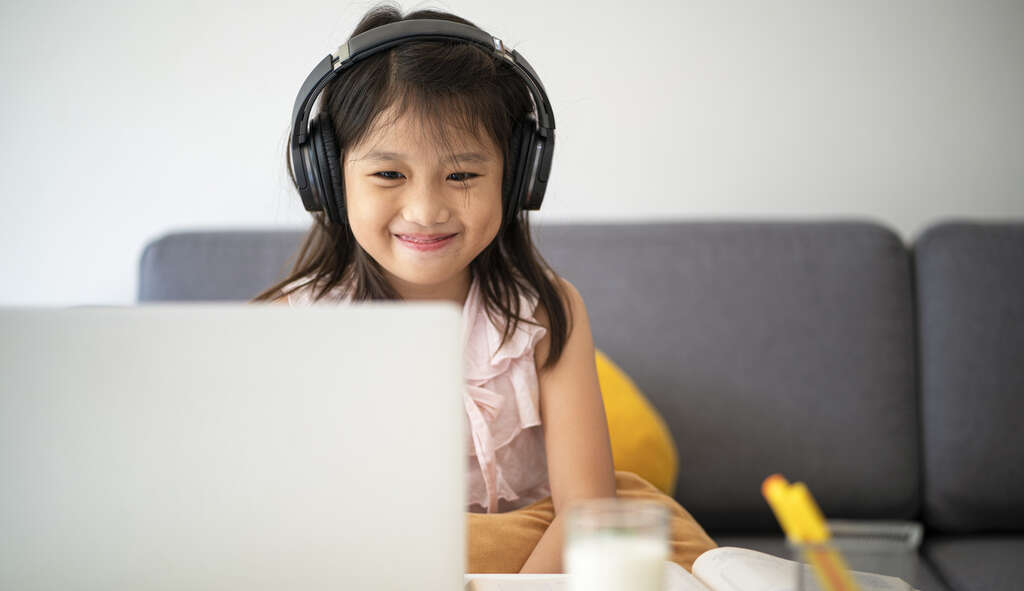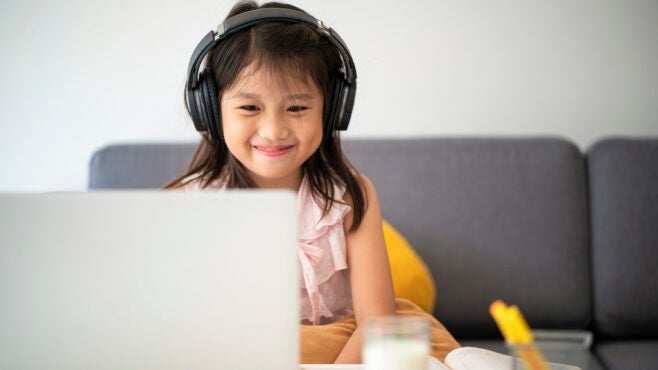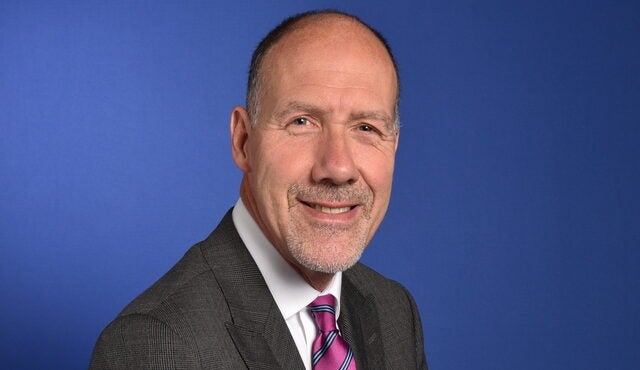

Home schooling: some kids have had far better learning resources than others during the pandemic. (Photo by tuachanwatthana / iStock)
- Years of state under-investment in education means UK schools have been less well prepared to cope with Covid than schools in other wealthy nations.
- Britain is spending far less per pupil to help them catch up than many other developed countries.
- The education quality gap between children from poorer households versus those from wealthier ones has widened further as a result of the pandemic.
When Covid-19 struck in March 2020, schools around the world were caught on the hop. But the UK was less well positioned to cope with the fallout for education than other wealthy countries.
Britain’s state school system, through which the vast bulk of the nation’s children pass, is, after health, the biggest recipient of public money. However, funding had been shrinking even before the pandemic. In the 2020-21 academic year the government spent £96.1bn ($129.5bn) on education, 8% below the £107.1bn peak (in real terms) in 2010-11 before post-2008 financial crisis cuts hit (see chart).
Meanwhile, other wealthy countries are spending considerably more per capita. In June 2021, the then UK education secretary Gavin Williamson announced a £1.4bn ($1.8bn) programme to help pupils in England catch up on lost schooling. That equates to £50 a head, compared with £1,600 per pupil in the US and £2,500 in the Netherlands.
That is “pitiful”, says Geoff Barton, general secretary of the UK’s Association of School and College Leaders (ASCL), which represents some 21,000 education leaders.
Covid-driven "learning loss"
Yet Covid-19 is likely to result in further cuts for the sector in the UK and elsewhere as governments seek to claw back some of the huge debt they ran up tackling the medical and economic impact of the pandemic. And tapping the debt markets is not an option in the same way as it is for higher education institutions such as universities.
“The pandemic has brought about significant needs in the education space – students have experienced a learning loss,” says Alejandro Caballero, senior education specialist at the International Finance Corporation, the private sector arm of the World Bank. “Classrooms remain fully or partially closed for 647 million school children around the world, and this will drive up learning poverty, which was already at a high level pre-pandemic.”
The global picture is stark. Fully half (53%) of children worldwide were already living in learning poverty – defined as being unable to read and understand a simple text by the age of ten – before Covid hit, according to research published last month by Unicef (the United Nations Children’s Fund), Unesco (the United Nations Educational, Scientific and Cultural Organization) and the World Bank. As a result of Covid that figure could rise to as high as 70%, estimates the report.

Geoff Barton of the Association of School and College Leaders says the first lockdown exposed the fact that UK education policy "has only ever paid lip service to digital learning". (Photo courtesy of ACSL)
Countries should allocate 4–6% of their GDP – or between 15% and 20% of total public expenditure – to education, argues the Education 2030 Framework for Action, established by Unesco in 2015. Yet the average government spent 3.6% of GDP in 2019, according to the latest data available from the World Bank. That number was 4.4% for the UK last year, up from around 3.9% because of the sharp Covid-related GDP drop.
Education is widely viewed as one of the best investments governments can make to improve social mobility, reduce poverty and help achieve related UN Sustainable Development Goals.
“The return on investment in education is that a highly skilled workforce will have better jobs and pay more taxes, which is very long-term [thinking] – much longer than election cycles,” says Rebecca Montacute, senior research and policy manager at the Sutton Trust, an educational charity based in London. “That makes it difficult for governments to prioritise education.”
The economic cost of not investing is also high. The Sutton Trust estimates the total net economic loss for just one year group in England due to Covid-related school closures is £1.5bn in lost earnings and tax.
Widening inequality
All children globally have been affected in some way by the pandemic. Even the best-case scenario for a child in the UK – in that they or their family members have not been sick and their school has been closed for the shortest possible period – is a loss of 16 weeks of in-person teaching, says Christine Farquharson, senior economist at the Institute for Fiscal Studies (IFS), a London-based research think tank specialising in taxation and public policy.
“That is a lot of time – and while it hasn’t exactly been wasted, home learning had varying degrees of success,” she says. “And, as expected, the poorest children really struggled with it,” she says. “Everybody was spending substantially less time learning, but the gaps between the poorest and richest were massive.”

Christine Farquharson of the Institute for Fiscal Studies says the poorest children have really struggled with home learning during Covid-induced school closures. (Photo courtesy of IFS)
The difference was down to relative access to resources, both digital and otherwise, and personal circumstances.
“The first lockdown really exposed the fact that education policy has only ever paid lip service to digital learning,” says the ASCL’s Barton. “But the unspoken issue was data: we had kids trying to do their history coursework on a phone with a pay-as-you-go plan, often in cramped living spaces.”
The more fortunate have been a lot less affected by Covid, he adds. “Partly because they or their teachers missed less time, and partly because they've been in a home where they've had a space to work, books to read, and adults who can have conversations with them.”
In March 2020, just 5% of teachers in British state schools said all students had access to an appropriate device for remote learning such as a laptop or tablet, compared with 51% at private schools, found the Sutton Trust.
This gulf in resources and opportunity seems only likely to widen further now, given that a family’s financial situation often has a direct impact on a child’s education.
According to the World Bank, the pandemic will slow progress on poverty reduction and in some cases reverse previous gains. Covid pushed an estimated 97 million more people globally (around 1.2% of the population) – including 700,000, or 1%, of the British population – into poverty in 2020.
A few education positives
While the combination of school closures, lockdowns and new health issues for millions of Britons has deepened societal divides, there are some positives.
This year’s UK school inspection results – which cover quality of education, behaviour and attitudes, personal development of pupils, and leadership and management – are, in fact, in line with those before Covid hit, “if not slightly improved”, says the Office for Standards in Education, Children’s Services and Skills (Ofsted).
What’s more, the UK government launched the National Tutoring Programme in November 2020 to provide support to children most affected by Covid-related disruption. A scheme of this sort has been needed for a long time, says Farquharson at the IFS.
“Some of us have been working on supporting the most disadvantaged kids in education for decades, and the pandemic has dealt a big blow to that,” she adds. “But it’s also a good opportunity because right now we have more buy-in [from the government] – we can concentrate minds and hopefully unlock a bit more funding.”
So far, however, the UK government has failed to live up financially to its claims of helping recover ground lost to the pandemic in education. Funding per pupil will not return to 2010 levels until 2024, the chancellor said in October. That does not bode well for Downing Street’s “levelling-up” ambitions if education truly is one of the best routes to social mobility.






